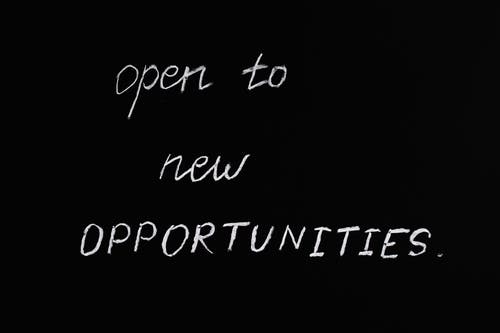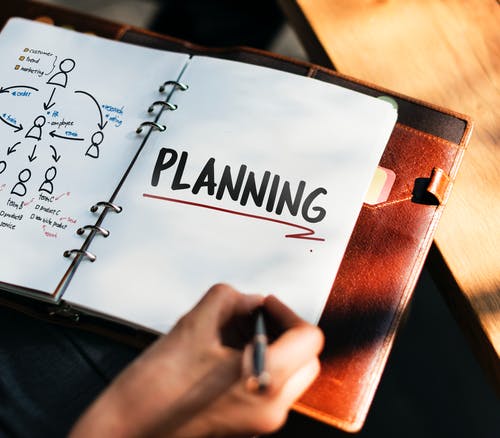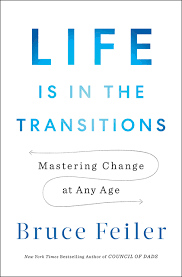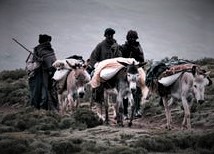
Jan 19, 2021
For months I’d been working on an idea to use my skills and background during my retirement years. I knew that I wanted to use group coaching to help clients on their own retirement journeys. But I couldn’t quite figure out how I was going to do that. The pandemic was a serious complication.
One day in May I was trolling the internet. I saw an ad that changed everything for me. At least that’s how I see it now.
The ad was from a company that helps people develop on-line courses. I was intrigued enough to attend two free talks on the subject. I liked the content and the speaker. The speaker and founder of the company, Danny, had insights that I had not seen or heard anywhere else. He was bright and somewhat unconventional, and he spoke exceptionally clearly. I was inspired.
I was also surprised. I had taught many courses in the past, some even at the university level. But this approach was new for me. I began to understand that I could use a group coaching approach in a course.
Danny offered a follow-up paid course that described not just the steps to do but also exactly how to do them. I was excited and signed up. This was a good decision. I love to learn new things and then apply them. This was a great opportunity to do just that.
I’ve been constantly surprised at how much I hadn’t known about the art and craft of teaching that I learned through this course. I’ve now applied what I’ve learned into my own on-line coaching courses.
What are your plans to learn something new and exciting?

Jan 12, 2021
The party was for 500 of us on Zoom. It was a social event during the first week of class, so that we could get to know each other. In the Zoom meeting we each rotated from one breakout room to another, fifteen new people at a time. We introduced ourselves. We told why we were taking the class.
I was on a mission. I listened carefully. I wanted to recruit a few of the most eager partygoers to join me in a Study Group. The idea was that we would meet periodically to discuss ideas from the class and to help each other in our ventures.
We formed our group. Weekly we met to share ideas from the class and support one another. It worked.
Last week our Study Group had been meeting for seven months. I was going through a tough time. My ambitions had grown – I wanted to conquer the world – now. I was getting more and more frustrated. There was a huge gap between where I was and where I wanted to be. I knew that meditation would help, but I had never been able to do that.
How could I get rid of the pit in my stomach? Why not just spread out my most urgent tasks over the first quarter of the year? I worked backwards from where I wanted to be at the end. When I did this, it seemed like I had to get nearly everything done right now, immediately, in the first week.
My Study Group was meeting. I couldn’t contain myself. I burst out what was going on, the importance of it all and the tremendous anxiety I felt. Arlene (her real name) is in my group. She is my junior by more than 20 years and is very wise. Arlene asked, “Why do you need to get it all done by the end of the quarter?” I didn’t know what to say. She continued, “So what if you don’t get all of this week’s tasks done? Why can’t you work on your own schedule and just do what you can do?”
I had no answer, at least not any good answer. I was stunned. I calmed down. Yea, Arlene.
What strategies do you use when everything is urgent?

Dec 29, 2020
On December 14 I tested positive for Covid 19. I’ve had absolutely no symptoms whatsoever over the past two weeks of my quarantine. I learned a lot.
Lesson 1: When the diagnosis was unexpected, it was shocking. I was barely out of my apartment for many months. I had done nothing “wrong” but still got it. I have no idea how that happened.
Lesson 2. The virus didn’t care what I believed. I believed that I had taken enough precautions not to be infected. I still tested positive.
Lesson 3: Just because someone looks healthy, it doesn’t mean that you’re safe if you mingle with them, unless they’ve very recently tested negative. A substantial number of people who get Covid 19 have no symptoms, but they can still infect others. You could have Covid and not know it if you’ve not been tested.
Lesson 4: The strict quarantining is even less fun than the normal safety precautions. My wife tested negative, so we had to work hard (masks, distancing, shifting household tasks) to prevent her from getting it. I can’t wait to get back to “normal – even pre-quarantine “normal.”
Lesson 5: The initial lack of symptoms didn’t remove the uncertainty. Would the Covid 19 flare up in a day or two? Also, some people report new symptoms months after contracting the disease. I think that I’m okay, but I don’t know for sure.
Lesson 6: Attitude mattered. As my shock diminished, my general feeling of optimism reappeared. My positive attitude helped me deal with the situation. I don’t know if my precautions had delayed the onset or diminished the severity of my Covid. I am extremely grateful that my situation wasn’t much worse.

Dec 21, 2020
Covid 19 has been an enormous disruptor for most people in the entire world – a change from what we’ve been doing and perhaps expecting to do. The normal expectation is that we’ll have a linear life – that we’ll keep going in the same direction as in the past and hopefully live happily ever after. Not so now.
We’ve all experienced disruptions in the past. What are they? The most well-known list of disruptions is the Holmes-Rahe life stress inventory. It includes changes in health, relationships, beliefs, work, and identity. The list is long. Any of these can disrupt your life.
In his book “Life Is in the Transitions” Bruce Feiler describes the results of his in-depth interviews of 225 people. He found that on average people experience a disruption every 12 – 18 months.
Feiler uses the term “lifequake” to describe a serious life-changing disruption. On average people experience 3 – 5 of these in their lifetimes. The Covid 19 virus can disrupt multiple areas of our lives all at once. For many of us, it is a lifequake.
How did we handle previous disruptions and lifequakes in ourlives? We generally found a way to adapt, although in some cases it could have taken years. Here are some of the strategies that Feiler describes that people have used as they have transitioned from the “before” to the “after”:
- Moving from resistance to acceptance of the new situation (think of the 12-step program)
- Dealing with emotions – fears of different kinds
- Giving up old mind-sets, being creative, and trying new things (including writing/journaling)
- Ritualizing change – marking an end and beginning
- Launching / Unveiling your new self and composing a new story for your new life
Many of these transitions, especially if they result from lifequakes, can take considerable time to accomplish. They are facilitated by help and support from others.
Are you in a lifequake now? What do you plan to do about it?

Dec 14, 2020
Will you have enough money for your retirement? Well, it depends on what you want to do in retirement and what that will cost. But there is more to the question than that.
There is a numerical approach to answering this question. When I was a financial planner, I helped people do the calculations. They wanted to know how long their money would last, based on their savings, investments, Social Security, and their future spending plans.
How much retirement income will you be able to draw from your investments? The calculations that I did used historic investment returns, taking their past variability into account. The result was a probability – the chances that there will be enough to last a lifetime.
When the calculation is all done, you still have to take your tolerance for risk into account. What if there were a 95% chance of your money lasting? That would mean a 5% chance that it wouldn’t. For some people 95% sounded great; for others, not so much. And if the chance of having enough were less, say 80 – 90%, what then? Or if it were more, such as 99%?
The numbers in a calculation about the future go only so far. You have to eat every day to survive, even during a pandemic when the possibility or reality of having less income can be quite real. Having a cash reserve available can be extremely helpful, pandemic or not, but that is based on your past behavior of putting “extra” money aside. You can only make decisions about what you do now for the future.
Having gratitude, faith, and hope helps to manage anxiety. The reality is that whether you are optimistic or pessimistic, life will go its own way. There will always be change and surprises to accommodate to – some negative, some positive.
A life driven by pessimism and fear is not much fun. I prefer to be an optimist. Having a positive attitude lets me participate in and enjoy life more fully along the way, however it all turns out.
What is your attitude about having enough for the future?

Dec 8, 2020
The pandemic is an excellent time to build your tribe. It is easy to feel isolated now when we are physically separate from friends and relatives. The isolation may motivate us to take action.
Historically, a tribe was a community related by geography, genetics, or history. In this internet age a tribe has come to mean people with common interests and values who use a shared vocabulary to communicate.
I take the notion of a tribe personally. I like to think of a tribe as people I know on a common journey, a network of like-minded people.
My tribe is comprised of people who accept and respect me for who I am. They care. They listen to what I have to say, yet challenge me when that is appropriate. They have similar morals and values or a similar history or interests to mine. Our conversations are easy and meaningful.
I have the same responsibility for them, including listening, accepting, and supporting them.
Building my tribe has not been easy, but it is worth it. My antennae are always out looking for candidates whom I can recruit. I will use Zoom to meet and greet them and invite them to be part of it.
Once they are members, I dedicate my time to building the relationship through periodic meetings. Or else we drift apart. Connecting doesn’t happen by itself. It requires time energy, and commitment. But the benefits are terrific – acceptance of who we are and companions in our journeys through life. My tribe can always use some more members.
What can you do to make more connections and build your own tribe?






